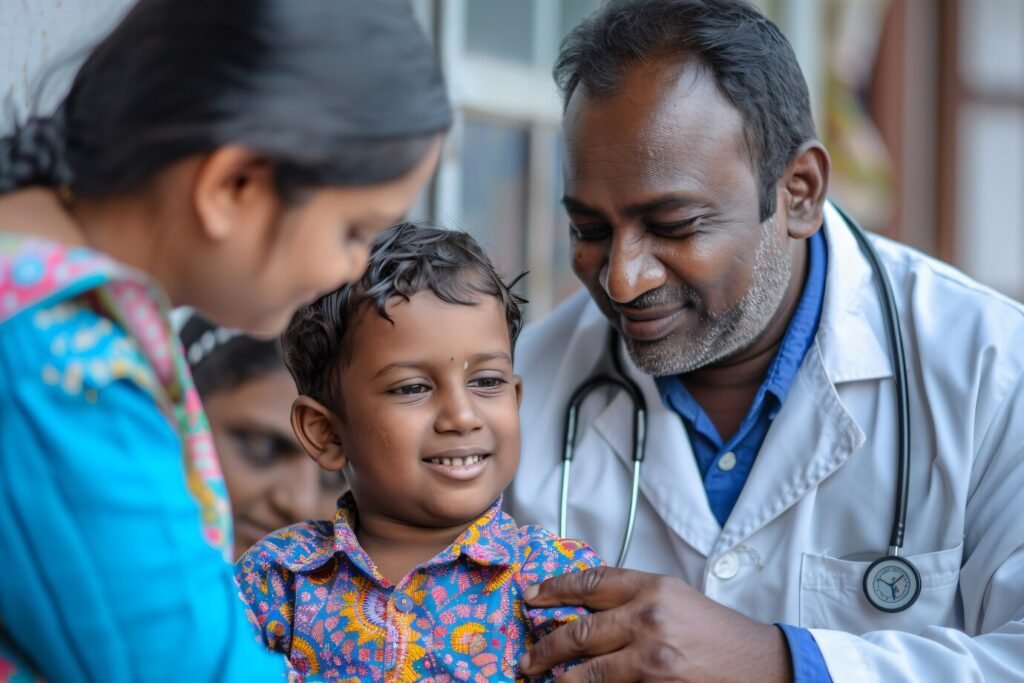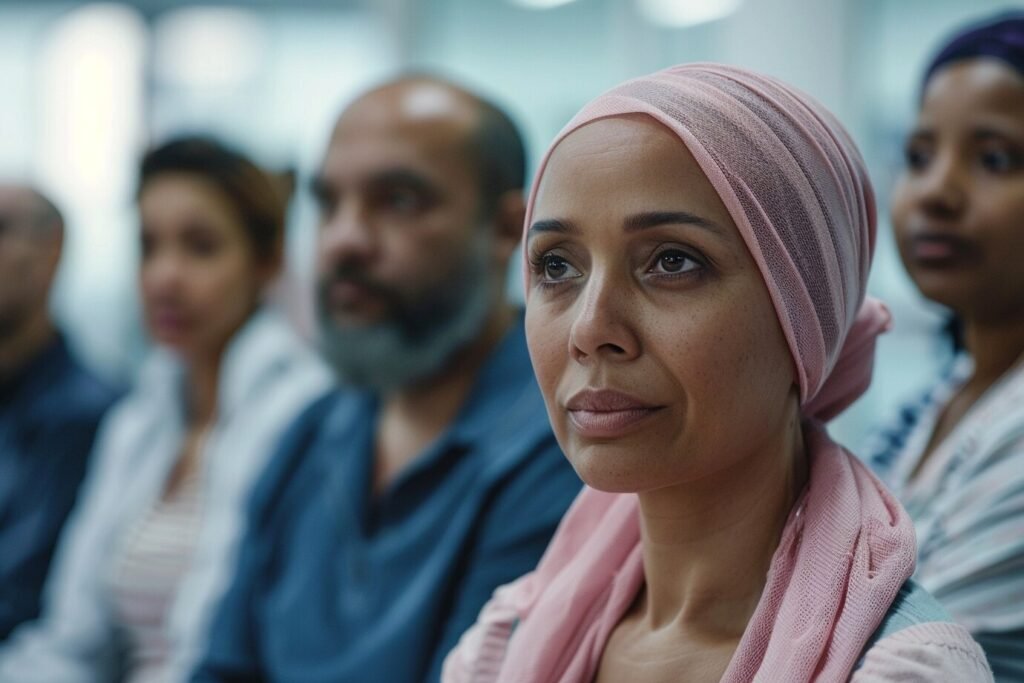Introduction to Healthcare Services in Karachi
Karachi, as one of the most populous cities in Pakistan, presents a unique landscape for healthcare services. The significance of easily accessible healthcare facilities cannot be overstated, given the diverse demographics and the large population, which necessitates a robust healthcare infrastructure. The combination of public and private healthcare systems aims to address the varying needs of the community, ensuring that essential medical services reach the broad spectrum of residents.
Table of Contents

The public healthcare sector in Karachi comprises various government-run hospitals and clinics that cater primarily to low-income groups. These facilities focus on providing essential medical services, often with limited resources or staff. Despite facing challenges such as overcrowding and insufficient medical supplies, these public healthcare centers play a crucial role in serving the population by offering services at little or no cost.
On the other hand, the private Healthcare Services in Karachi has been rapidly expanding, introducing a plethora of specialized clinics, private hospitals, and diagnostic centers. These facilities are often equipped with modern technology and staffed by well-trained medical professionals. While they provide a higher standard of care and shorter waiting times, their services come at a premium, making them less accessible to low-income communities.
Additionally, the emergence of telemedicine and community health initiatives in Karachi signifies a shift towards modernizing healthcare delivery. These innovative solutions aim to bridge the gap between patients and healthcare providers, especially in areas where traditional healthcare services are lacking. Exploring the interplay between these various aspects of healthcare availability will offer valuable insights into how the landscape operates and its implications for the city’s residents.
Overview of Public Healthcare Services in Karachi
The public healthcare services in Karachi, as one of the largest cities in Pakistan, plays a crucial role in providing medical services to its diverse population. Government hospitals, clinics, and community health centers form the backbone of this system, ensuring that basic health services are available to the residents. Accessibility to these facilities is generally intended to cater to the needs of low-income groups, making it essential for the overall health landscape of the city.

In Karachi, public healthcare services in Karachi are offered through various government-operated institutions. Major hospitals, such as the Civil Hospital Karachi and Jinnah Postgraduate Medical Centre, provide comprehensive healthcare services, including emergency care, surgical procedures, maternal and child health services, and chronic disease management. Additionally, a network of smaller clinics and community health centers are located throughout the city, aimed at handling primary care and preventive services. These facilities often focus on maternal and child health, immunization programs, and health education, contributing to the community’s overall well-being.
Despite these efforts, public healthcare services in Karachi face significant challenges. Overcrowding is a persistent issue, as an increasing population and a high influx of patients often overwhelm available resources. This excessive demand results in long waiting times and can compromise the quality of care provided. Furthermore, government hospitals frequently struggle with inadequate funding, leading to limited medical supplies and insufficient staff. Health professionals often work under less than optimal conditions, impacting their ability to deliver effective care. Addressing these challenges is essential for enhancing the quality and accessibility of public healthcare services in Karachi, ensuring that all residents receive the medical attention they require.
Private Healthcare Services in Karachi: Quality and Affordability
The private healthcare services in Karachi plays a pivotal role in the overall healthcare framework, offering a range of services that cater to diverse patient needs. Private hospitals and specialty clinics are known for their capability to deliver higher quality care, often boasting advanced medical technologies and a more personalized approach to treatment. As healthcare demands escalate, private providers have positioned themselves as critical players in delivering timely and efficient medical attention.

One of the primary advantages of private hospitals in Karachi is their shorter waiting times compared to public healthcare services in Karachi. Patients often have easier access to medical professionals and can benefit from specialized services without prolonged delays. This promptness is particularly essential in emergency situations, where timely intervention can significantly impact outcomes. Furthermore, many private facilities offer a comfortable environment, ensuring patients receive a level of service that aligns with their expectations for care.
While the benefits of private healthcare are evident, costs associated with these services can vary widely, often reflecting the quality and range of treatments available. Private healthcare facilities cater to different socioeconomic groups by offering a spectrum of pricing options. For example, some clinics operate on a fee-for-service basis, where patients pay directly for consultations or procedures, while others may offer packages that bundle services at a reduced rate. This tiered pricing model allows patients from different financial backgrounds to access healthcare services in Karachi, although the affordability of many private options may still be a barrier for lower-income families.
In summary, the private healthcare services in Karachi enhances the quality of medical services available to residents. Through improved access, advanced technology, and tailored care, private providers continue to address the diverse health needs of the population while navigating the complexities of affordability in an emerging market.
Availability of Specialized Medical Health Services in Karachi
Karachi, being the most populous city in Pakistan, boasts a diverse array of specialized medical services. The availability of these services is crucial for meeting the complex healthcare services in Karachi needs of its residents. Among the notable specialties are cardiology, orthopedics, and pediatrics, each of which is supported by reputable institutions equipped with advanced technology and skilled professionals.

In the field of cardiology, Karachi is home to several leading hospitals such as the National Institute of Cardiovascular Diseases (NICVD) and the South City Hospital. Innovations in cardiac care have led to improved diagnostics and treatment protocols, allowing healthcare providers to deliver effective interventions for conditions such as heart attacks and arrhythmias. These institutions are equipped with state-of-the-art imaging technologies and catheterization labs, which enhance their capacity to manage complex cardiac cases.
Orthopedic services have also seen significant growth, with hospitals like the Liaquat University Hospital and the Aga Khan University Hospital establishing specialized clinics for musculoskeletal disorders. The advancements in minimally invasive surgery and arthroscopy have revolutionized the approach to treatment. Moreover, the integration of physical rehabilitation programs ensures comprehensive care that addresses both surgical intervention and long-term recovery.
Pediatrics remains a priority as well, with hospitals such as The Indus Hospital and Children’s Hospital offering specialized care tailored to the needs of younger patients. Advances in pediatric care, including immunization programs and neonatal intensive care units, have improved health outcomes for children facing various medical challenges. Furthermore, the emphasis on preventive care helps in mitigating health issues before they escalate.
Overall, healthcare services in Karachi landscape reflects a commitment to advancing specialized medical services. The ongoing integration of cutting-edge technology plays a vital role in enhancing treatment efficacy and accessibility, thereby ensuring that the population receives comprehensive and high-quality medical care.
Challenges Faced by Healthcare Providers
Healthcare services in Karachi confront a myriad of challenges that significantly impact their ability to deliver quality services. One of the foremost issues is inadequate infrastructure. Many healthcare services in Karachi are often overcrowded and under-resourced, leading to long wait times and diminished patient experiences. The infrastructures, including hospitals and clinics, frequently lack essential equipment and technology necessary for effective diagnosis and treatment. This not only hampers the efficiency of service delivery but can also jeopardize patient safety, thus affecting overall health outcomes in the city.

Another significant concern is the shortage of qualified professionals healthcare services in Karachi. The city has been facing a persistent deficit of doctors, nurses, and other allied health staff. High patient-to-provider ratios create immense pressure on existing staff, often leading to burnout and decreased job satisfaction. This scarcity of workforce resources adversely impacts the quality of care patients receive, as healthcare providers are compelled to attend to multiple patients simultaneously, which may lead to oversight and potential errors in treatment.
The economic factors further complicate the working environment for healthcare services in Karachi. Many residents struggle with financial constraints, which limits their access to necessary healthcare services in Karachi. This financial pressure can also impact healthcare facilities as they often rely on patients’ payments for operations. Insufficient funds can lead to cutbacks in services, staffing, and necessary medical supplies. Ultimately, these economic challenges can contribute to higher rates of preventable diseases and poor healthcare outcomes in the population.
These challenges create a complex landscape for healthcare services in Karachi, making it imperative to develop strategic interventions to improve both healthcare delivery and patient outcomes. Addressing issues related to infrastructure, workforce shortages, and economic constraints is vital to enhancing the overall efficiency of healthcare services in Karachi.
Traditional Medicine Practices in Karachi
Karachi, as a melting pot of cultures and traditions, displays a rich tapestry of healthcare practices that encompass both conventional and traditional medicine. The city is home to a myriad of traditional medicine systems, primarily rooted in the Indus Valley civilization. These practices include Unani, Ayurvedic, and Homeopathic medicine, which have their own unique approaches and philosophies regarding health and healing.

Unani medicine, which has Persian and Greek influences, emphasizes the balance of bodily humors and the significance of natural elements in achieving health. Practitioners often employ herbal remedies, therapeutic diets, and regimens tailored to individual patient needs. Meanwhile, Ayurveda, which has its origins in ancient India, focuses on holistic well-being, incorporating nutrition, lifestyle, and mind-body therapies to restore health. This system’s principles are particularly appealing to many residents of Karachi, who seek natural alternatives to pharmaceuticals.
The prevalence of traditional medicine is significant in Karachi, with numerous clinics and practitioners available to those seeking alternative therapies. Many individuals opt for these services either as a primary treatment method or as a complement to conventional medical care. This coexistence of traditional and modern healthcare highlights the varied preferences among the population regarding health management. Furthermore, the cultural significance attached to these practices fosters a sense of community and continuity, as they have been passed down through generations.
It is also noteworthy that within the greater healthcare landscape of Karachi, the integration of alternative medicine into mainstream practices is becoming increasingly common. Hospitals and clinics now often collaborate with traditional medicine practitioners to provide patients with comprehensive treatment options, reflecting a broader acceptance of diverse healing modalities. This convergence signifies a progressive shift towards a more inclusive healthcare model that respects the cultural heritage while addressing modern medical needs.
Emerging Trends in Healthcare Technology
In recent years, Karachi has experienced significant advancements in technology healthcare services in Karachi, which have proven instrumental in transforming patient care delivery. One of the most notable developments is the rise of telemedicine, which allows healthcare providers to connect with patients remotely. Through video consultations and mobile applications, physicians can diagnose and treat patients more efficiently, reducing the need for physical visits and ensuring timely medical attention, especially in a sprawling city like Karachi.

Another trend gaining traction is the adoption of e-health solutions. These applications not only facilitate remote consultations but also empower patients to manage their health records, appointments, and prescriptions from the convenience of their smartphones. This transparent access to personal health information promotes patient engagement and encourages individuals to take an active role in their healthcare journey, ultimately leading to improved outcomes.
Moreover, the implementation of digital health records has revolutionized the way patient information is stored and accessed. In Karachi, many hospitals and clinics are transitioning from traditional paper-based systems to electronic health records (EHRs). This shift enhances the accuracy and availability of patient data, allowing for seamless information sharing among healthcare providers. As a result, medical professionals can make informed decisions more quickly, thus enhancing overall healthcare services in Karachi.
The integration of artificial intelligence (AI) and data analytics in healthcare is also on the rise, with local startups and hospitals increasingly leveraging these technologies for predictive analytics and personalized medicine. By harnessing vast amounts of health data, practitioners can better understand patient populations and tailor treatment plans to individual needs, further optimizing care quality and efficiency.
As these emerging technologies continue to evolve, they promise to further improve accessibility and quality of healthcare services in Karachi, creating a more responsive and patient-centered environment.
Patient Experience and Feedback
Patient experience plays a crucial role in shaping healthcare services in Karachi, influencing both the quality of care provided and the overall satisfaction of individuals seeking medical attention. In Karachi, a city with a complex healthcare landscape comprising both public and private facilities, understanding the patient journey is vital for improvement and reform. Feedback from patients not only highlights the strengths of the healthcare system but also serves as a catalyst for identifying areas that require enhancement.
The significance of patient feedback is particularly apparent in Karachi, where a diverse patient demographic presents unique challenges and expectations. In public hospitals, for example, patients often express frustration regarding long wait times and limited resources. A case study involving a public hospital in Karachi revealed that several patients reported feeling neglected due to overcrowding, which adversely impacted their overall experience. However, initiatives aimed at incorporating feedback led to better crowd management and reduced waiting times, demonstrating the value of patient input.
On the other hand, private healthcare facilities often emphasize customer service, seeking to provide a more personalized experience. Several testimonials from patients receiving treatment in private hospitals highlight the importance of staff attentiveness and the quality of amenities offered. One patient shared a positive experience regarding a timely surgical procedure and attentive post-operative care, underscoring how these factors contribute to higher patient satisfaction levels.
Collectively, these experiences illustrate that patient feedback is indispensable in refining healthcare services in Karachi. By actively listening to the concerns and suggestions of patients, both public and private healthcare providers can foster an environment that prioritizes patient-centric care. Implementing structured feedback mechanisms ensures that healthcare services in Karachi evolve continuously, ultimately enhancing patient outcomes and satisfaction in Karachi.
Future Prospects for Healthcare in Karachi
The healthcare landscape in Karachi is set for transformative change in the coming years, influenced by a combination of current trends, governmental efforts, and international collaborations. With a rapidly increasing population and evolving health needs, stakeholders in the healthcare sector are focusing on enhancing service delivery and healthcare accessibility. Public-private partnerships are emerging as a significant catalyst for innovation, resulting in improved infrastructure and healthcare services in Karachi.
Recent government initiatives, such as the expansion of primary healthcare facilities and the implementation of health insurance schemes, have created a more robust framework for addressing the populace’s needs. These initiatives aim to reduce the burden on tertiary care centers and ensure that basic healthcare services in Karachi are readily available to all citizens. Furthermore, the ongoing reform of healthcare policies is focused on improving quality standards, which is essential in fostering trust and engagement among the urban population of Karachi.
In addition to governmental initiatives, the role of international partnerships cannot be overlooked. Collaborations with global healthcare organizations and foreign investment are driving advancements in medical technology and knowledge transfer. These partnerships provide opportunities for local healthcare providers to access cutting-edge treatment methodologies and enhance their service offerings. Moreover, training programs for healthcare workers facilitated by international entities focus on skill enhancement and best practices which are essential in addressing local health challenges effectively.
Areas for improvement also persist, such as bridging the gap in mental health services and addressing the need for specialized care in pediatrics and geriatrics. The integration of telemedicine is another avenue for innovation that holds promise for expanding access to care, especially in underserved areas. As Karachi’s healthcare system evolves, it will be crucial to sustain these efforts to foster a more resilient and effective public health landscape.
Conclusion and Frequently Asked Questions
In summary, navigating healthcare services in Karachi is a multifaceted issue that requires a thorough understanding of the available options. The healthcare landscape in Karachi is marked by a diverse range of facilities, from public hospitals to private clinics, each offering varying levels of service quality and accessibility. With the rapid urbanization of the city, the demand for healthcare services has grown significantly, presenting both challenges and opportunities for improvement. It is essential for residents to be informed about the types of healthcare services in Karachi available and the standards they uphold.
Access to quality healthcare in Karachi remains a critical need, especially in addressing common health issues and ensuring the overall well-being of its population. Public health initiatives must prioritize expanding coverage and improving healthcare infrastructure to alleviate the pressures on existing facilities. Regular check-ups, preventive care, and timely medical attention can help mitigate serious health complications, emphasizing the role of proactive healthcare among the community.
When it comes to frequently asked questions, many residents often inquire about insurance coverage, available specialties, and emergency services. Understanding the nuances of healthcare insurance can provide clarity on which services are covered and the potential out-of-pocket expenses. Moreover, patients usually express concerns regarding the waiting times in public hospitals and seek advice on which private facilities offer timely care without compromising quality. Another common query revolves around the availability of specialists in Karachi and how to schedule appointments with them promptly.
As the healthcare system evolves, being well-informed can empower individuals to make better healthcare choices. It is advisable for residents to remain updated on healthcare policies and advancements that impact service delivery. Thus, promoting awareness and understanding of available healthcare services in Karachi is crucial for fostering a healthier community.



